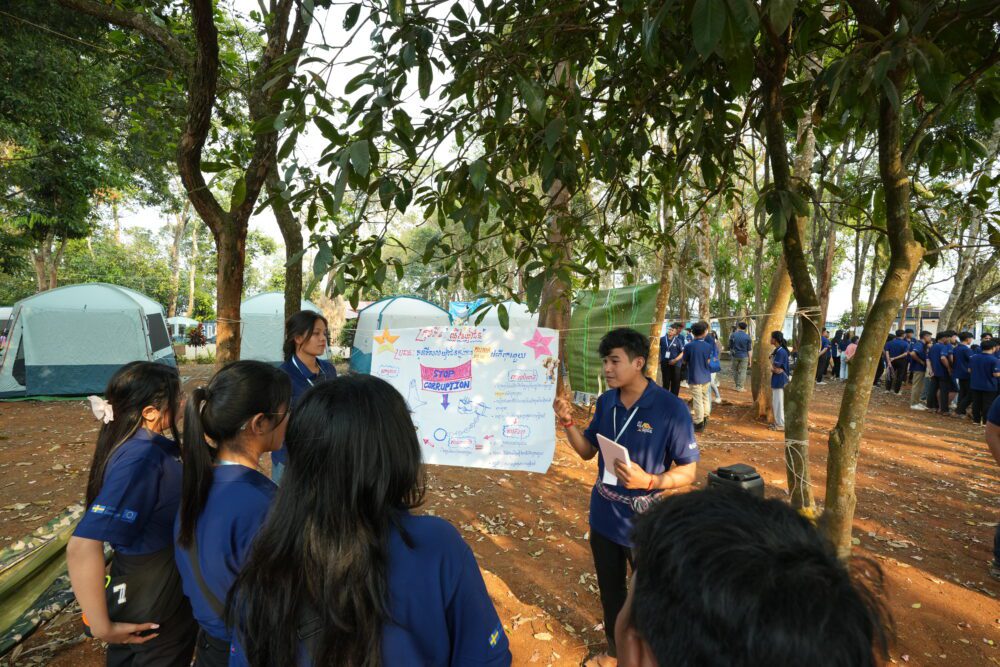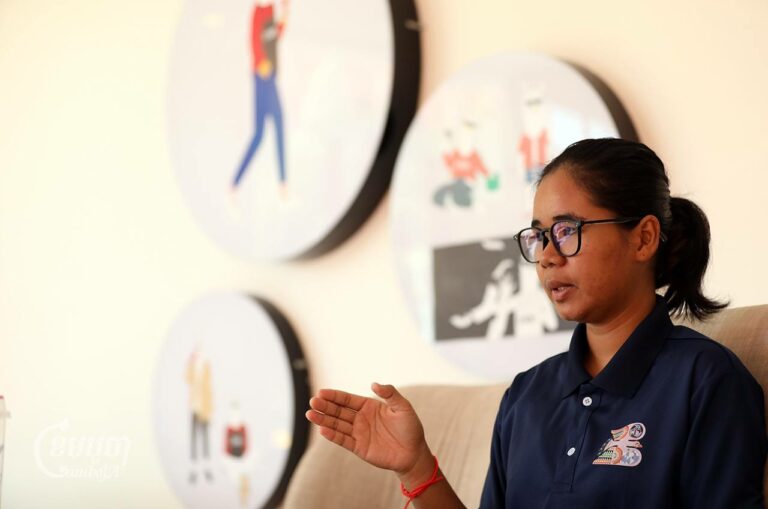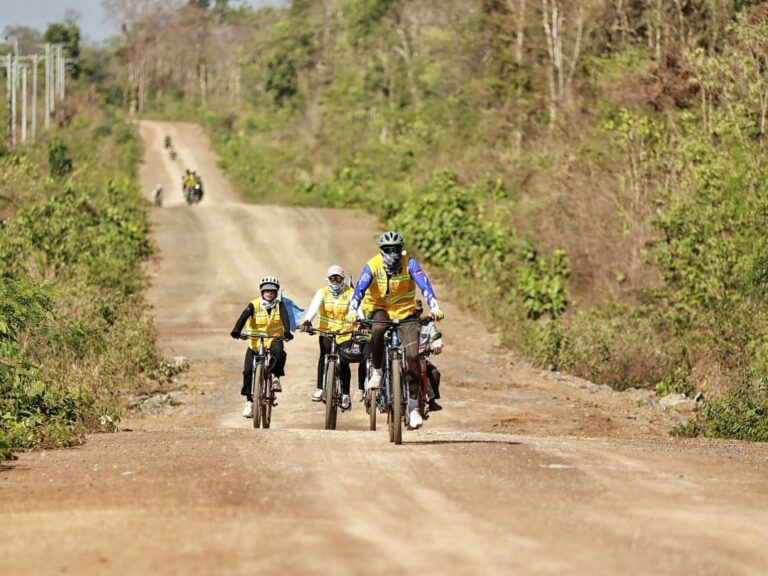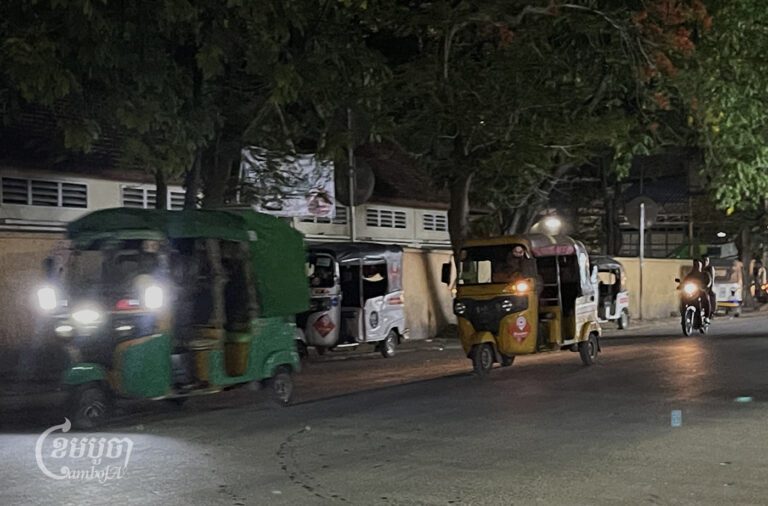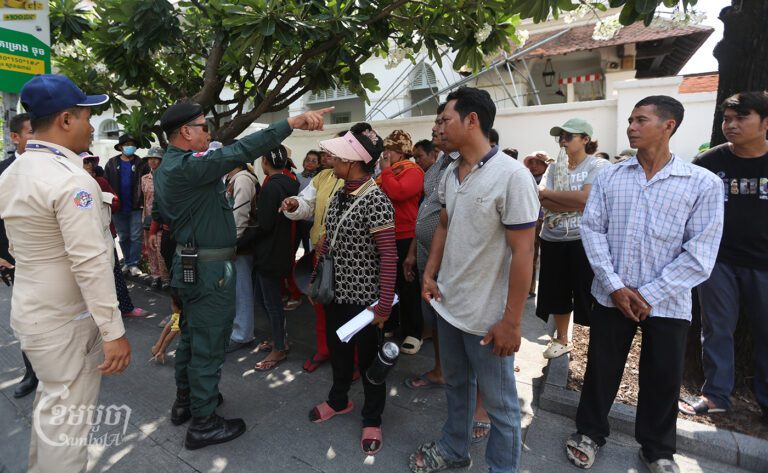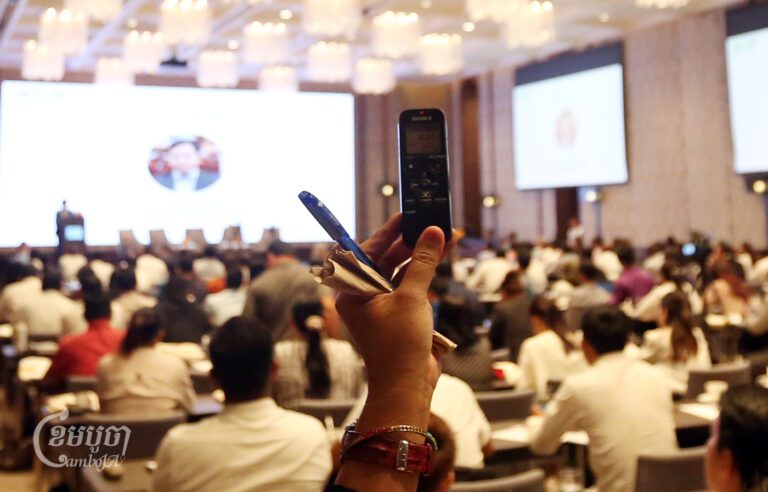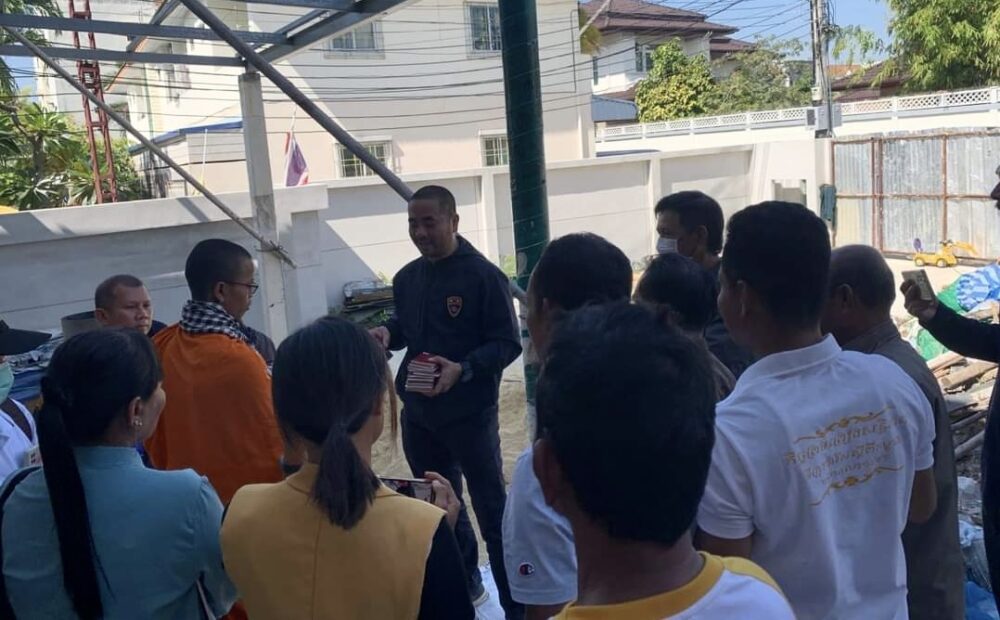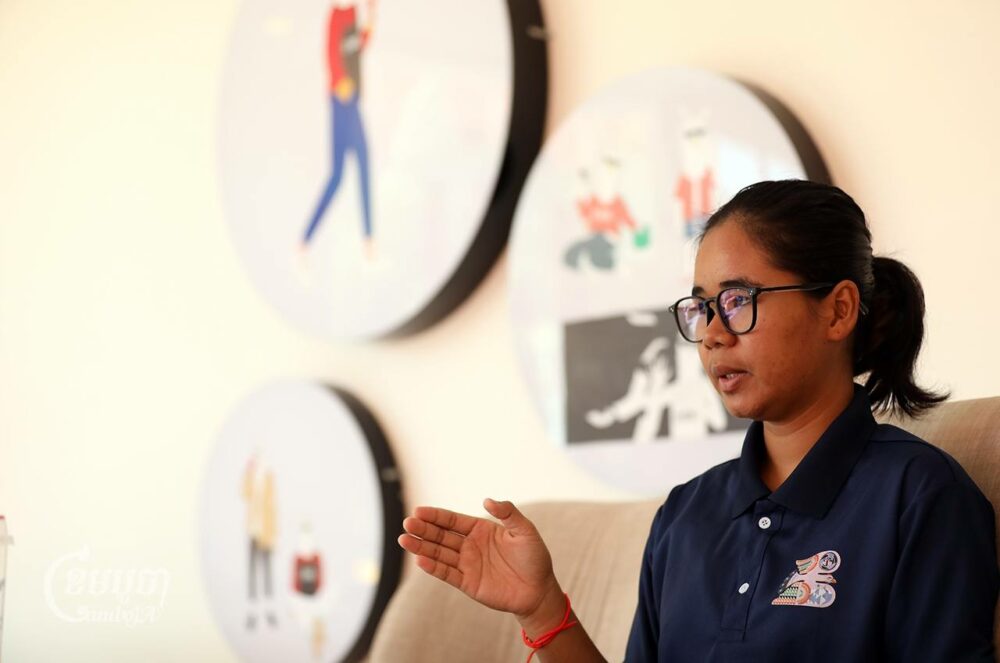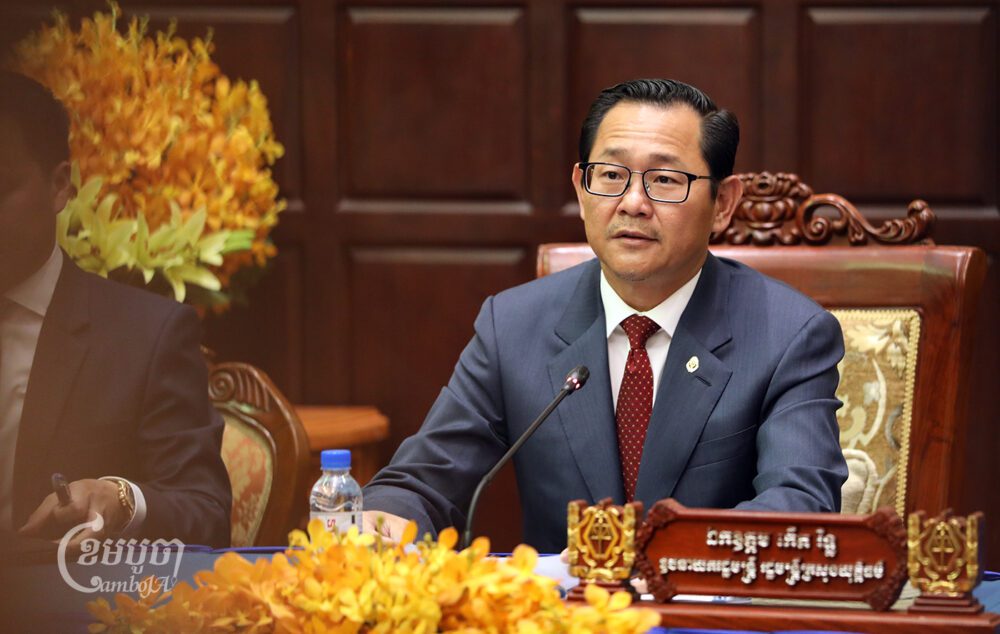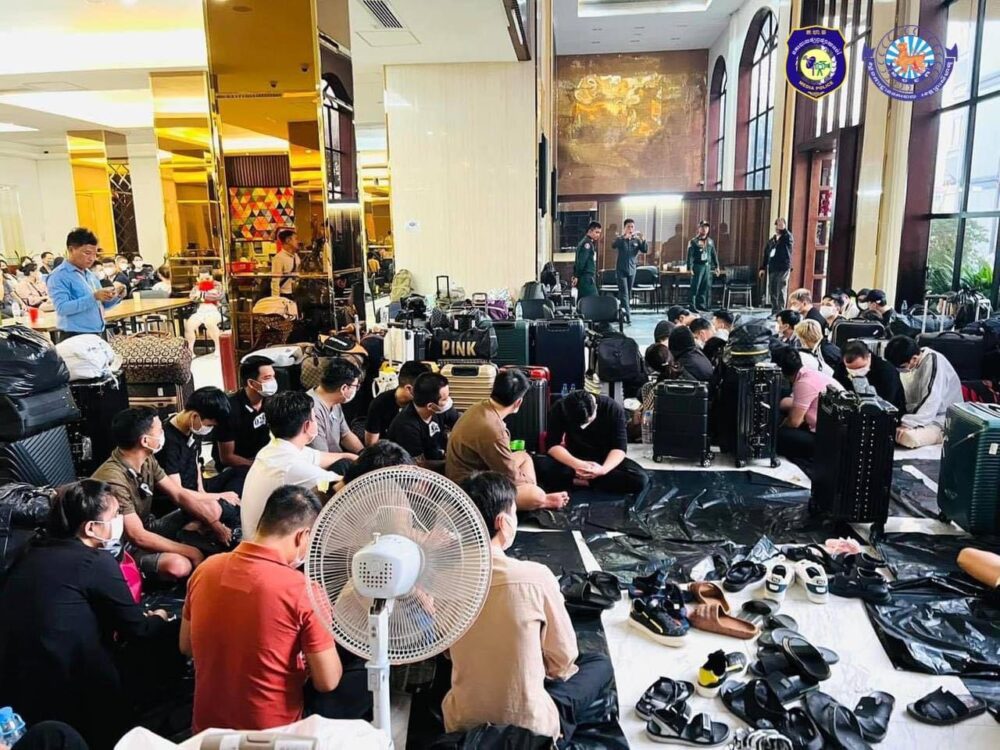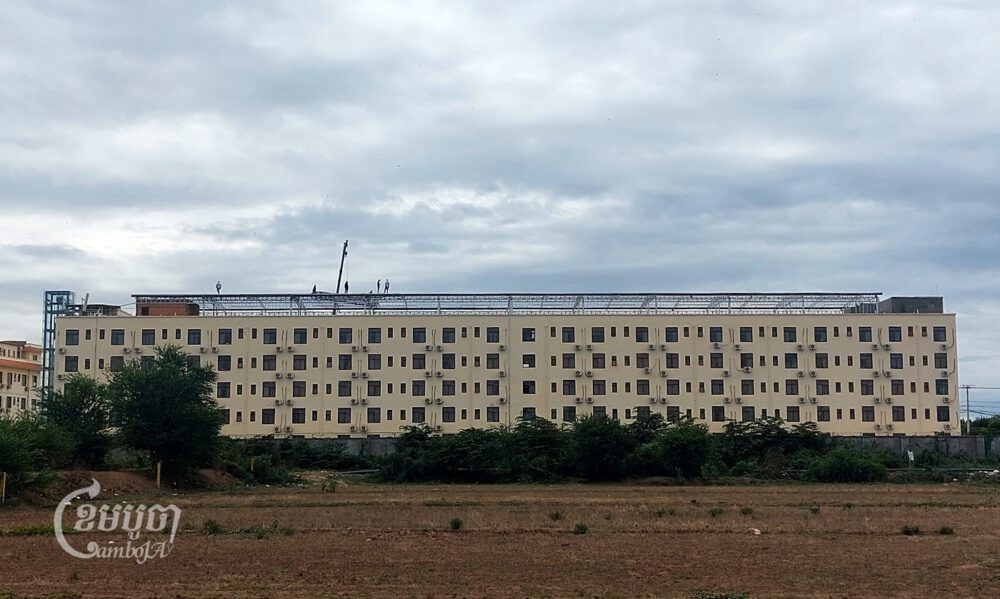Some problems, if they are being solved using the same approach, cannot be solved, said 26-year-old Ses Aronsakda of Future Forum. Young people with innovative ideas have lots of potential and are important for policy participation, said the researcher who focuses on urban planning and development.
Aronsakda believes in the potential of young people to influence policies that shape the future as they are brave and always have new ideas, which means that they do not use the same method to solve problems.
New way of engaging in policy
Aronsakda joined the Young Researcher Program in 2021 where he learnt how to research, write, advocate and understand the process of public policy. He believes that when young people know how to research and write, they can write short articles on policy briefs that highlight root causes and solutions.
He felt that this was an effective way for young people like him to contribute to public policy. “They taught us how to use different approaches, which I think is also a very critical aspect. Most of the people focus on problems but when we want to present a policy, no one wants to hear about the problem,” he said.
He explained that drawing a policy means finding a solution. “We don’t focus on the issue. We focus on the solutions, but from a systematic perspective.”
At the same time, youths must present effective recommendations in the policy brief by understanding the social context and root of the problem.
“We have to look at the context of our country. We don’t have many resources, so when we come up with something, we must [work with the] limited resources and time,” he said. “Whenever we write a recommendation, choose an angle that would have a strong impact and be very effective. It also involves systematic thinking, meaning that we understand the problem from every angle.”
For some problems, trying to solve them the same way, might not lead to a solution, Aronsakda said, citing the example of a flyover construction, which might be useful in the short term only but in the long run cause traffic congestion. He said this was the approach by “older researchers, and it is not easy to change their minds”.
Young people can challenge the solution if this is wrong and come up with something more creative. The approach of policy briefs should be different from old approaches, and use angles which are cost-effective, focusing on the time and resources. “That’s why we need young people.”
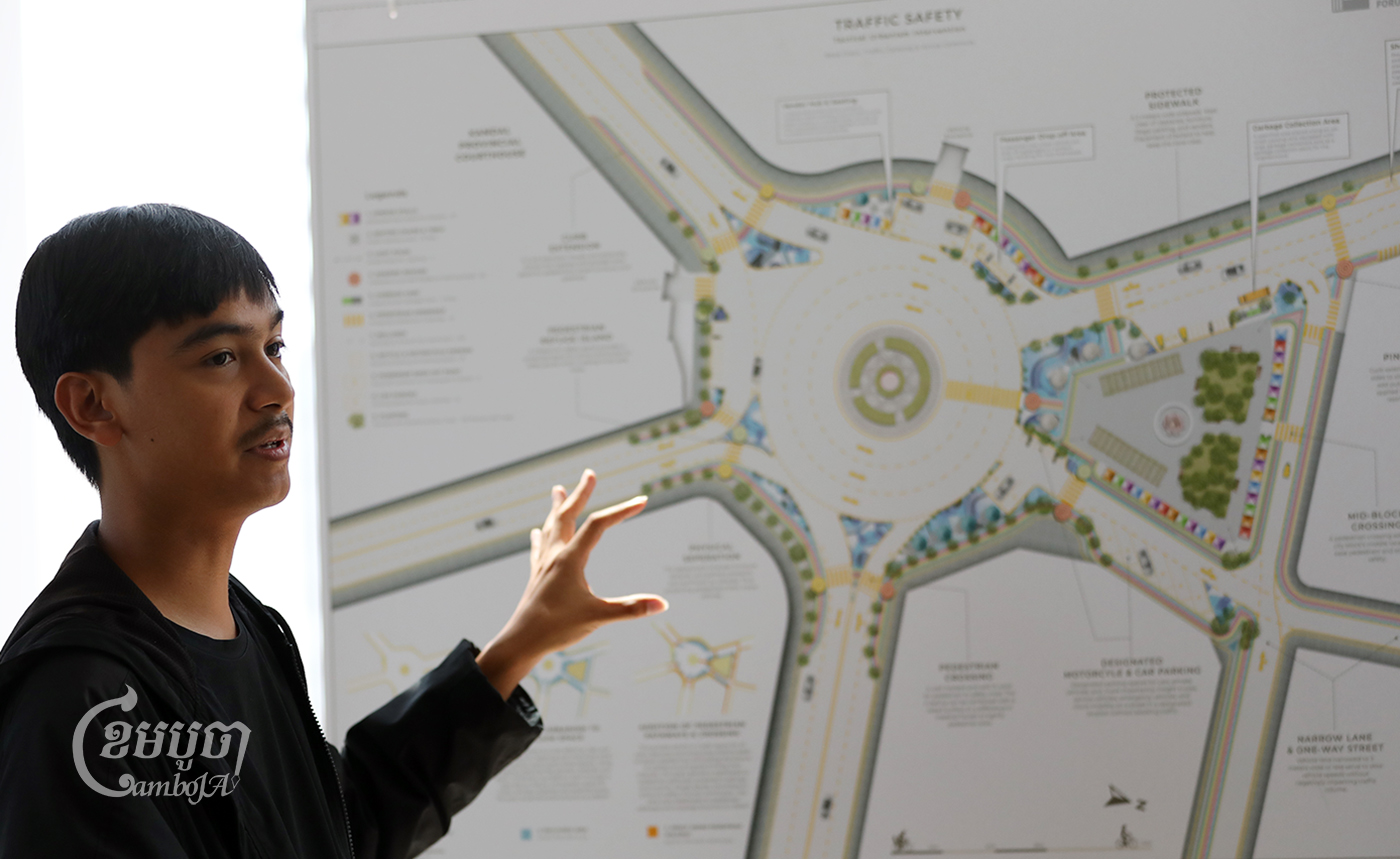
Although some of the writings (policy briefs and commentaries) were not considered, Aronsakda believed that when problems revolving urban development arise in future, the government or private sector might start looking at the recommendations made by young people.
Thus, he believed that when certain sectors are looking for solutions to problems, the youths would have already identified them through their research, which he considers an important influence by youths.
Whenever he releases a policy brief, he does not expect it to be considered. However, participation through policy writing is a process which everyone needs to work and contribute together. “Think long term because the policies we make today will not [be] used [immediately]. It takes years.”
Limitation on fundamental analysis
Ou Virak, president of Future Forum, said to reach young people they need to learn how to analyze but this is what youths lack since the beginning.
Public policy is very important, especially when people understand the use of systematic mechanisms to solve social and national problems but in Cambodia, particularly when it comes to research that depends on basic analysis, young people’s knowledge is limited.
“Understanding public policy is very important. It involves thoughts, analysis, scientific research which are based on facts and arguments, or evidence based on comprehensive information and analysis.”
“But, we lack these things so we lack such participation in the beginning. We see a lot of issues raised, but they are often incomplete and it is not possible to reach out to discuss solutions as an option,” Virak said.
In order to fill the gap as a strategy to strengthen the ability of young people to understand and have real skills, he thinks it is important for them to be a key player in raising issues, and then research, study and find solutions.
There are many observers of social issues or policies, but less on scientific analysis. Seeing the potential of young people who can come up with new ideas, Virak created programs to help young people become analytical and creative thinkers.
“Creative thinking and systematic thinking is an important strategy for young people. They must understand all aspects [of an issue] and think forward to find solutions,” he said.
However, he stressed that if young people participate in the short term, it can be “dangerous”, although it is not their fault because society gives these kinds of views to the youth.
“It’s not their fault. We should not blame the person who is in trouble,” he said, adding that if changes are expected, particularly in the participation of young people in public policies, there needs to be more openness. If the government can provide a wider space, they will feel more confident to participate and not be afraid.
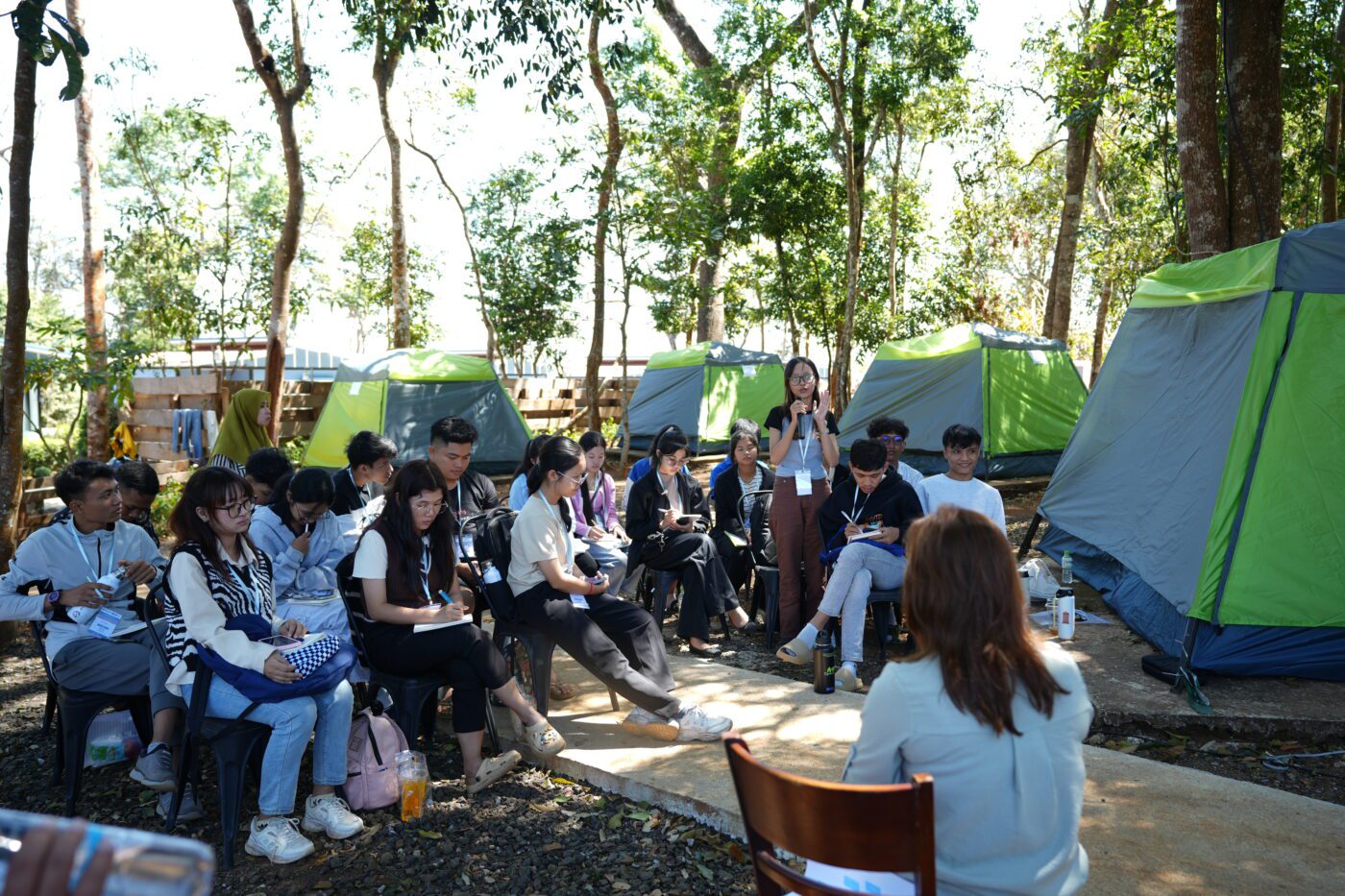
Not many mechanisms
Ly Sreysrors, a young analyst, said not many young people participate in policy discussions because the space for involvement is limited.
According to Transparency International, only 20% to 30% of Cambodians youths interviewed had an understanding of public policies, which was “not much”.
The Open Budget Survey Cambodia 2023 report showed that the country had a public participation score of only “two out of 100 formal opportunities” offered to the public for meaningful participation in the different stages of the budget process. This included youths, Sreysrors said.
Although there are not many mechanisms to involve young people in public policy discussions, they can still contribute by writing commentaries or policy briefs based on their observation or analysis.
“Based on their own perception, analytics and taking important steps, it offers young people the opportunity to make political decisions or recommendations,” she said.
The participation of young people in monitoring policy is important as it can influence policy makers. It is a mechanism for the promotion of transparency in policy-making as well as decision-making and mitigating some irregularities in policy management.
“If there isn’t a lot of public and youth participation in debates and follow-ups on policy-making, I think policy decisions will become less transparent,” Sreysrors said.
She added that in some ministries, young people are welcome to participate in discussions, but there is no way to know if their input is taken into account as there is no mechanism to ensure the input or suggestions are discussed further.
“Sometimes it is an image to make [the ministry] look good,” she said.
Suos Yara, first vice chairman of the Cambodian People’s Party’s (CPP) External Relations Commission declined to comment while Sok Eysan, spokesperson of CPP did not respond to questions.
Elements of fear impact youths
Meanwhile, Mao Mab, executive director of Klahaan, a women’s rights organization, said at the local level, there is limited mobilization of youths.
“I think the participation of young people in policy discussions or development planning in villages and communes remains very small,” she added.
The participation of young people was important in policies because they are the core force in social development and it was their needs that should be met.
“Their problems are many, so are their needs. If the core force is not taken into consideration, their problems in the policy will not be raised, their needs will not be met, which makes development less progressive,” she said.
Young people are now less involved in policy discussions, except for those who care about environmental issues or those who studied law and international relations, but for specific policy matters, Mab said she has not seen much participation.
This is because there is “not yet a comfortable environment” for them to participate in debates, which is also related to their low knowledge on topics and “threats”.
Mab said young people might be affected by bad examples. “These are when youths who participate in social or environmental issues receive threats, are arrested and imprisoned. It scares the others,” she said.
The society should create an environment for young people to participate while the latter themselves must begin to strengthen their own capacity, follow the news, and monitor national and regional development.
The contribution from young people, who raise issues, can help policy makers. It should start from the youths and stakeholders should be open and ready to mobilize youths, Mab opined.
Knowledge reduces participation, though growth noticed
Im Sorachana, a project staff member with the Youth Resource Development Program (YRDP), said youth participation in public policies was also related to which high school or educational environment offered opportunities for them to engage in social and political debates.
Therefore, young people need to strengthen their capacity, especially social work and the process and discuss social issues. They need to have some information before they can participate in the implementation process.
“To enable young people to participate in effective policy discussions, they need to monitor the government’s development process, whether they are drafting laws that serve their interests. If they don’t follow, they could lose out,” Sorachana said.
However, these problems arise from a lack of access to information and space, and an environment where they can participate comfortably with regards to social and political discussions.
Sharing similar views, secretary-general Ly Sothearayuth of Candlelight Party observed that young people’s participation is still limited, especially in issues which affect them, possibly due to the lack of freedom.
“In order for them to participate in societal activities or decisions relating to social issues, there has to be more space. Young people need to have the opportunity to discuss issues on national development, so that they can highlight their concerns, demands and challenges,” he said.
Sothearayuth mentioned that the more young people participate in social issues, the more developed the country will become, thanks to their fresh ideas.
In Candlelight Party, there is a clear policy to encourage young people to participate in socio-political issues and decision-making processes.
Conversely, FUNCINPEC spokesperson Nhoeun Raden told CamboJA News that there was active participation from youth in the monitoring and discussions of public policies.
“In general, I have observed that there has been involvement in the law, such as the drafting of laws. Young people have been actively involved in laws such as the press law,” he said. “Young people have also been involved via workshops of civil society organizations to collect input because they have a lot of potential to join together to be part of the law-making [process].”
Raden said when he visited the grassroots, local youths also had the courage to raise many issues related to their needs. These needs are carefully recorded as a voice for the future.
“The voice of youths is representative of their parents, politics as well as in the context of a new society towards future development,” he added.


